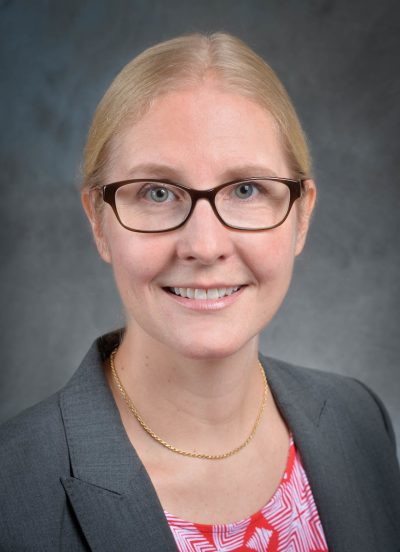Liz Whiteacre helps continue the conversation about disabilities

Conversations about disabilities, whether they are visible or invisible, help us become better at articulating and understanding things that are abstract. Liz Whiteacre, assistant professor of English, has been at the forefront of that conversation on UIndy’s campus. One of the ways Whiteacre has done so has been through her support of disability literature.
“Being able to connect personally to other peoples’ experiences helps us to be more compassionate towards others,” Whiteacre said.
An accident while Whiteacre was working on her MFA in creative writing at Southern Illinois University Carbondale resulted in a spinal injury and required approximately two years of therapy. “I started writing poems about my experiences, and this introduced me to a wonderful community of writers who also explore issues of disability,” she said.
During this time, Whiteacre submitted two poems about her spinal injury to a writing contest hosted by Inglis Poetry House. Her poem “Trashcan, Unmoved” won the competition. Her success in that competition introduced her to Michael Northen, who is the editor of an online quarterly journal on disability poetry literature and art, Wordgathering. The publication is dedicated to providing a venue where the work of writers with disabilities can be found, as well as building up a core of work for those interested in disability literature.
Recently, to celebrate the publication’s 50th issue, Northen solicited three new poems from Whiteacre. She submitted “The Butterfly Effect,” “The Law of Inertia” and “The Stoic’s Universe.”
Whiteacre said it is important to highlight and have open conversations about disabilities in daily life, and especially exploring them in literature, because it makes those feelings relatable – even to those who aren’t experiencing them firsthand. “When someone tells me they are in pain or failing or newly in love, I have a generalized sense of what that could mean,” Whiteacre said, “But when that person is able to make connections between their pain, failure, love and concrete things—then I start to have an easier time understanding what is unique about that person’s experience.”
“On campus, we have many opportunities to practice explaining our hard-to-explain things to people, and taking these risks and pushing ourselves to use figurative language to find shared experiences that will serve to connect us with others helps create a close, vibrant campus community,” Whiteacre said.
Among those opportunities was this fall when UIndy hosted Mira T. Lee for a Kellogg Writers Series reading as the 2018 Whirling Prize honoree under the theme of disability. Lee wrote a book on disabilities and mental health called “Everything Here Is Beautiful.”
“Making time to engage with conversations about disabilities, including mental health, on campus can strengthen our understanding and respect of other people and help us each feel like we are part of a community that has our backs,” Whiteacre said.
